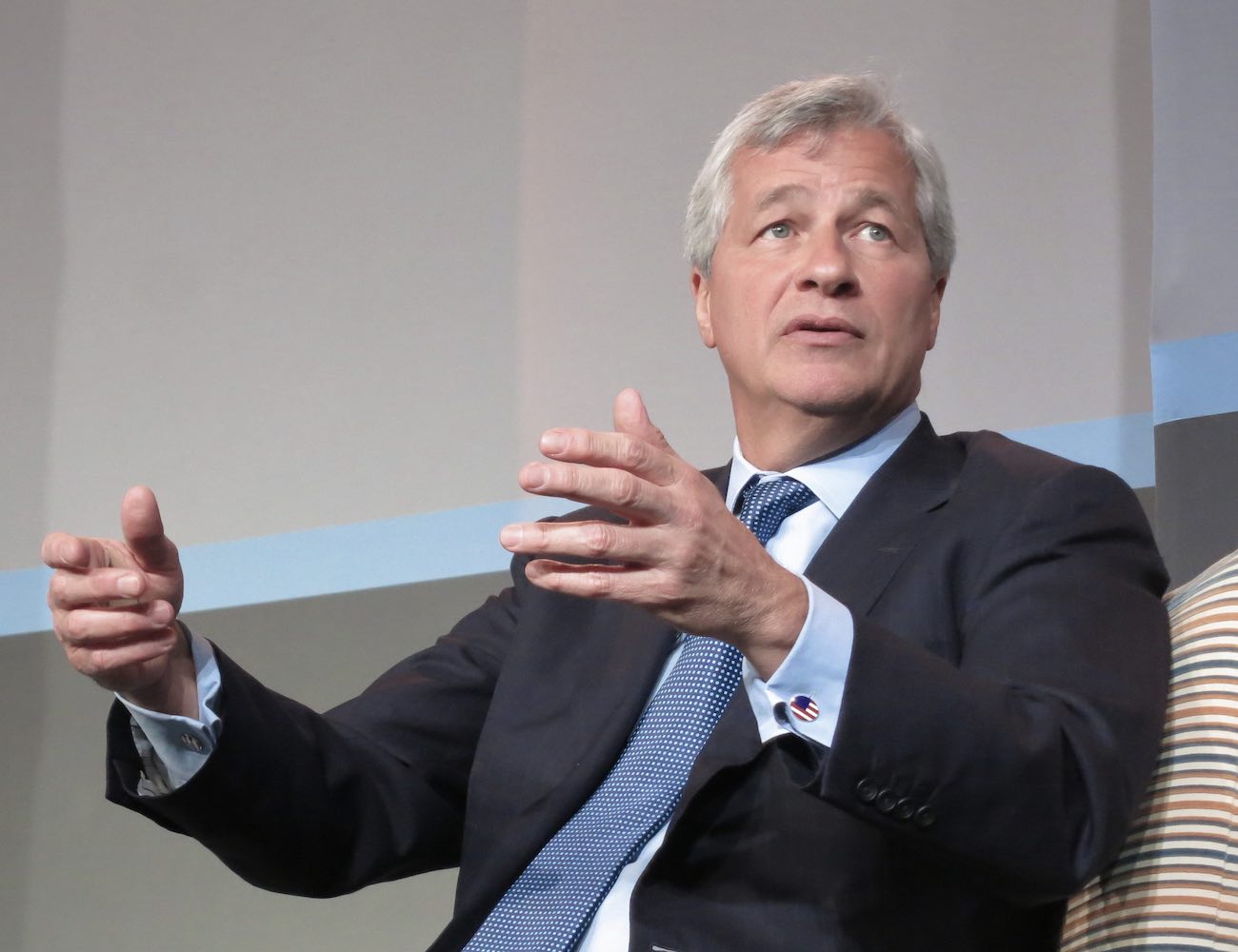ImpactAlpha, Feb. 25 – Under pressure from investors and activists, the world’s largest financier of fossil fuels will quit funding new oil and gas developments in the Arctic and impose new restrictions on financing coal companies.
The policy, to be unveiled this morning by Jamie Dimon at the bank’s investor meeting, puts JPMorgan Chase on par with Goldman Sachs, which announced a similar policy in December (see, “Climate Finance 2020: Leaders and laggards in the race to net-zero”).
JPMorgan economists are warning of potential “catastrophic outcomes” and threats to “human life as we know it” in a climate change report that was leaked last week.
“JP Morgan Chase can’t not say something on climate right now,” Rainforest Action Network’s Alison Kirsch said, adding, “It’s nowhere near commensurate with their responsibility as the world biggest banker of fossil fuels.”
Activists are calling for even bolder action, namely a ban on new fossil fuel funding. JPMorgan’s fossil-fuel financing totaled $196 billion in the three years after the Paris Agreement was signed in 2015, according to RAN’s “Banking on Climate Change” report.
But like this month’s reversal by BP, Dimon’s effort to go from laggard to leader will put pressure on other CEOs (see, “Net-zero pledges by BP’s new chief raise the stakes for oil majors”).
Climate Finance 2020: Leaders and laggards in the race to net-zero
Low bar. Banning coal financing is now table stakes for major banks. The industry’s deteriorating economics mean it’s not a risky move and coal already represents a tiny fraction of JPMorgan’s business. Missing from the bank’s new policy: restrictions on destructive and expansionary activities such as tar sands drilling, pipelines and deep sea drilling. “These are the things that make it clear they’re committed to an endless expansion of the fossil fuel era,” said 350.org founder Bill McKibben.
Hot seat. Longtime JPMorgan director Lee Raymond is the target of a campaign by shareholder activists to oust him. As CEO of ExxonMobil from 1993 to 2005, Raymond oversaw the oil and gas giant’s climate obfuscation campaign. Raymond is “uniquely poorly qualified to provide the oversight needed to protect long-term shareholder value,” Majority Action writes in an S.E.C. filing.
Green funding. JPMorgan said it would invest $200 billion in projects that further the U.N. Sustainable Development Goals, including $50 billion in green financing. In December, Goldman committed to $750 billion over 10 years to finance the climate transition and inclusive growth.
European leaders. Climate policies at both JPMorgan and Goldman Sachs lag European counterparts such as Crédit Agricole, BNP Paribas and UniCredit. The bank to beat: Royal Bank of Scotland, now called NatWest Group, which this month said it will become “climate positive” by 2025, capturing or eliminating more carbon than it emits. NatWest will halve emissions linked to its lending activities by 2030. Says Kirsch: “We need those ripple effects to cross the Atlantic.”











